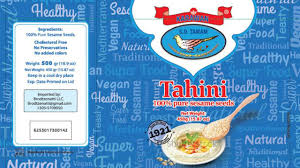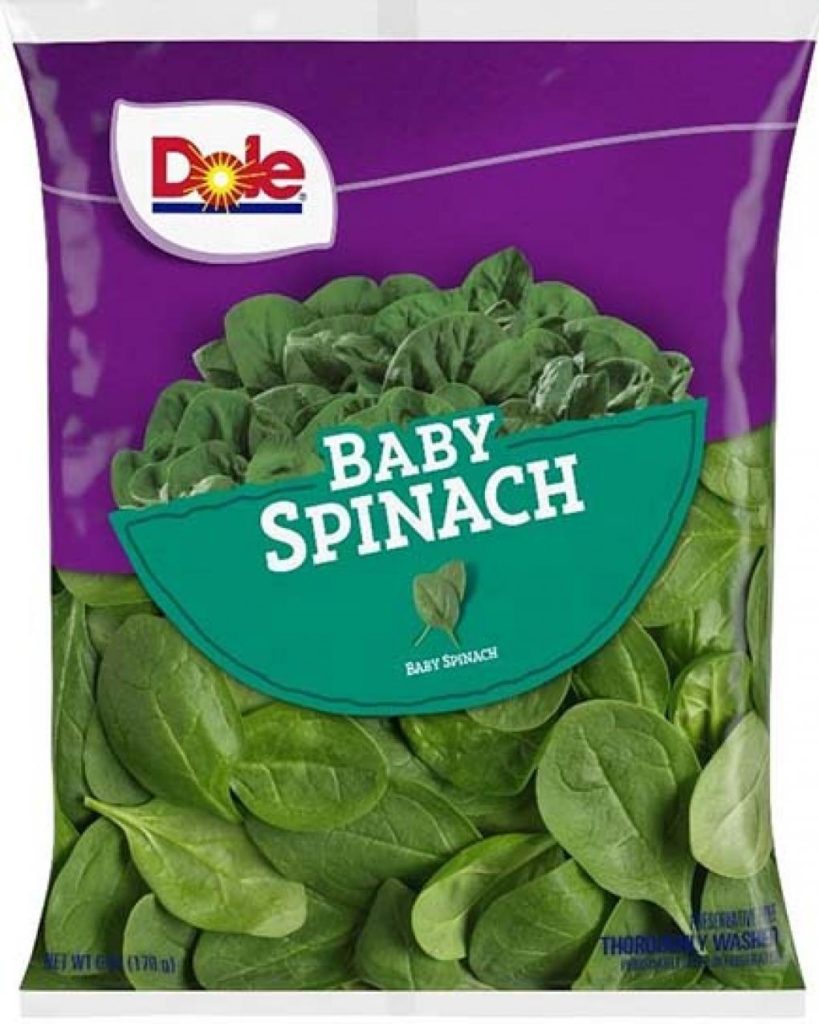FDA Acting Commissioner Ned Sharpless, M.D., announced the issuance of the first warning letter to a U.S. food importer using our authority under FSMA’s Foreign Supplier Verification Program (FSVP) regulation. The warning letter follows an FDA inspection conducted in response to a recent Salmonella outbreak, which revealed that the importer was not in compliance with the FSVP. The FDA announced that it would take more steps to ensure compliance with FSVP, including reinspecting importers that had deficiencies in previous inspections and by acting immediately when FSVP deficiencies are found that pose an imminent public health risk. The warning letter, dated July 30, was issued to the Brodt Zenatti Holdings LLC in Jupiter, Florida who imported Tahini from the Israel-based manufacturer, Karawan Tahini and Halva. Brodt Zenatti Holdings LLC was found to violate the FSVP rule; requiring importers perform certain risk-based activities to verify that food imported has been produced in a manner that meets applicable U.S. food safety standards. Failure to correct violations can lead to Import Alert #99-41 (Detention Without Physical Examination Of Food Products Due To The Presence Of Salmonella, and is subject to detention without physical examination). @ https://www.fda.gov/news-events/fda-brief/fda-brief-fda-issues-first-warning-letter-importer-tahini-implicated-recent-salmonella-outbreak?utm_campaign=081319_FIB_FDA%20issues%20warning%20letter%20under%20Foreign%20Supplier%20Verification%20Programs&utm_medium=email&utm_source=Eloqua
Doug-B
FDA issues first warning letter to the importer of tahini implicated in recent Salmonella outbreak under the Foreign Supplier Verification Programs
ruth
Although most of the FSMA rules were finalized and published a long time ago the Food laboratory accreditation and model laboratory standards are not yet published. Food Quality and Safety report that a variety of laboratory organizations are getting together to demand that the rules be published. Currently, most laboratories voluntarily use the international standard ISO/IEC 17025, the official standards have not been issued. Heather Jordan, director of LGC Proficiency testing operations, says, “The law calls for model standards that laboratories must meet for accreditation purposes. But surprisingly, existing standards are all voluntary. If we’re going to make critical decisions based on lab test results, we need to ensure their accuracy.” When FDA might release the rule remains unknown. “The sooner the better,” says Brad Goskowicz, CEO of Microbiologics. “We look forward to reviewing the FDA proposed rule and offering public comments.”@ https://www.foodqualityandsafety.com/article/industry-urges-fda-to-release-fsma-lab-proposed-rule/?elq_mid=38140&elq_cid=10195538&utm_campaign=24016&utm_source=eloquaEmail&utm_medium=email&utm_content=Email-Research-IssueAlert-FQSeUpdate_08-13-19_08-12-19.html
Organizations ban together in response to FDA’s long delay in releasing a FSMA rule that addresses lab accreditation and model lab standards.
ruth
The FDA announced on its website that Dole Fresh Vegetables, Inc. had voluntarily recalled a limited number of cases of baby spinach. The products being recalled are 6 oz Dole Baby Spinach bag, Lot code W20308A, and 10 oz Dole Baby Spinach clamshell, Lot code W203010, both with Use-by dates of 08-05-2019, due to possible contamination from Salmonella. No illnesses have been reported in association with the Recall. The products were distributed in IL, IN, KY, MI, NJ, NY, OH, TN, VA, and WI. This precautionary Recall is being issued due to a sample of Baby Spinach that resulted in a positive test for Salmonella in a random sample test conducted by the Department of Agriculture in Michigan.
https://www.fda.gov/safety/recalls-market-withdrawals-safety-alerts/dole-fresh-vegetables-announces-precautionary-limited-recall-baby-spinach
The products being recalled are 6 oz Dole Baby Spinach bag, Lot code W20308A (UPC code 0-71430-00964-2), and 10 oz Dole Baby Spinach clamshell, Lot code W203010 (UPC code 0-71430-00016-8), both with Use-by dates of 08-05-2019, due to a possible health risk from Salmonella
Emmy-S
Scientist from Perdue University published in the August issue of Applied and Environmental Microbiology a study in which they performed RNA sequencing on three isolates (two outbreak-associated isolates and a reference Salmonella Heidelberg strain) with various levels of heat tolerance to gain insight into the mechanism behind the isolates’ enhanced heat tolerance. A genomic analysis was performed to determine the genetic relationships among the outbreak isolates. The conclusion of this study revealed that (i) six Salmonella Heidelberg isolates associated with the foodborne outbreak had enhanced heat tolerance, (ii) one outbreak isolate with enhanced heat tolerance also had an enhanced biofilm-forming ability under stressful conditions, (iii) exposure to heat stress increased the expression of Salmonella Heidelberg multidrug efflux and virulence genes, and (iv) outbreak-associated isolates were likely transcriptionally primed to better survive processing stresses and, potentially, to cause illness. @ https://aem.asm.org/content/85/16/e01065-19
Salmonella enterica serovar Heidelberg is currently the 12th most common serovar of Salmonella enterica causing salmonellosis in the United States and results in twice the average incidence of blood infections caused by nontyphoidal salmonellae. Multiple outbreaks of salmonellosis caused by Salmonella Heidelberg resulted from the same poultry processor, which infected 634 people during 2013 and 2014. The hospitalization and invasive illness rates were 38% and 15%, respectively. We hypothesized that the outbreak strains of Salmonella Heidelberg had enhanced stress tolerance and virulence capabilities. We sourced nine food isolates collected during the outbreak investigation and three reference isolates to assess their tolerance to heat and sanitizers, ability to attach to abiotic surfaces, and invasiveness in vitro . We performed RNA sequencing on three isolates (two outbreak-associated isolates and a reference Salmonella Heidelberg strain) with various levels of heat tolerance to gain insight into the mechanism behind the isolates’ enhanced heat tolerance. We also performed genomic analyses to determine the genetic relationships among the outbreak isolates. Ultimately, we determined that (i) six Salmonella Heidelberg isolates associated with the foodborne outbreak had enhanced heat tolerance, (ii) one outbreak isolate with enhanced heat tolerance also had an enhanced biofilm-forming ability under stressful conditions, (iii) exposure to heat stress increased the expression of Salmonella Heidelberg multidrug efflux and virulence genes, and (iv) outbreak-associated isolates were likely transcriptionally primed to better survive processing stresses and, potentially, to cause illness.
IMPORTANCE This study provides a deep analysis of the intrinsic stress tolerance and virulence capabilities of Salmonella Heidelberg that may have contributed to the length and severity of a recent salmonellosis outbreak. Additionally, this study provides a comprehensive analysis of the transcriptomic response of S. enterica strains to heat stress conditions and compares baseline stationary-phase gene expression among outbreak- and non-outbreak-associated Salmonella Heidelberg isolates. These data can be used in assay development to screen isolates for stress tolerance and subsequent survival. This study adds to our understanding of the strains associated with the outbreak and informs ongoing regulatory discussions on Salmonella in poultry.




